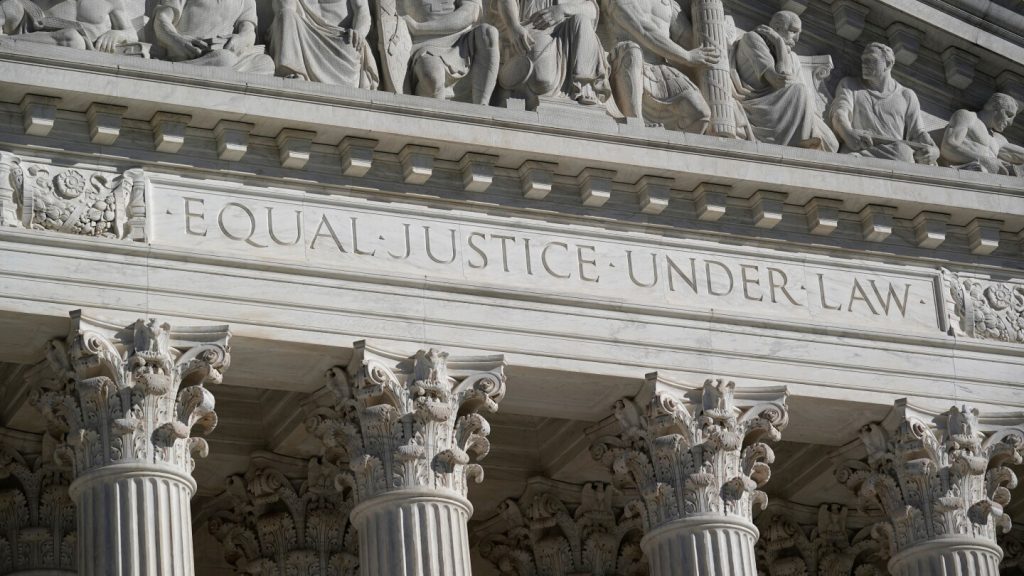Listen to the article
The Supreme Court has agreed to hear a case that could fundamentally alter how states count mail-in ballots received after Election Day, a practice that has been repeatedly criticized by former President Donald Trump and has become increasingly contentious in American elections.
On Monday, the Court announced it would review a Mississippi case that challenges state laws permitting the counting of ballots that arrive shortly after Election Day, provided they are postmarked on or before that date. The case stems from a ruling by the 5th U.S. Circuit Court of Appeals, which found that Mississippi’s practice of counting late-arriving ballots violated federal law.
The decision to take up this case puts at risk voting procedures in 18 states and the District of Columbia that currently accept ballots received after Election Day. This includes crucial swing states like Nevada and states with robust mail-voting systems such as Colorado, Oregon, and Utah. An additional 14 states allow late-arriving ballots from specific eligible voters, including overseas military personnel.
Mississippi Attorney General Lynn Fitch, a Republican, urged the Supreme Court to overturn the appellate decision, warning it “will have destabilizing nationwide ramifications” if allowed to stand. In her filing, Fitch emphasized the potential impact, stating, “The stakes are high: ballots cast by—but received after—election day can swing close races and change the course of the country.”
The challenge to Mississippi’s law was led by the Republican National Committee and the Libertarian Party of Mississippi. The core legal question centers on whether federal law establishing a single Election Day prohibits states from counting valid ballots that arrive afterward.
Judge Andrew Oldham, writing for the three-judge panel that included Judges James Ho and Stuart Kyle Duncan—all Trump appointees—concluded that Congress established a “singular” Election Day for federal elections, “by which ballots must be both cast by voters and received by state officials.” Their ruling reversed U.S. District Judge Louis Guirola Jr.’s decision, which found no conflict between state and federal laws.
The timing of mail-in ballots has become a flashpoint in American politics, particularly after the 2020 election. Trump has repeatedly claimed that counting late-arriving ballots undermines election integrity. In March, he signed an executive order on elections aimed at requiring votes to be “cast and received” by Election Day, though this order faces legal challenges.
Several Republican-led states have already moved to restrict the counting of late-arriving ballots. Kansas and North Dakota have implemented such measures, while Ohio’s Republican lawmakers are advancing legislation that would require ballots to be received by Election Day, eliminating the current grace period.
In a separate but related case, the Supreme Court is also considering whether to revive a lawsuit by Representative Mike Bost (R-Ill.) that challenges Illinois’ ballot receipt law. That case hinges on whether the congressman has legal standing to sue.
The Mississippi case will be argued in late winter or early spring, with a ruling expected by June 2024. This timeline ensures the decision will be in place well before the 2026 midterm elections, potentially reshaping how votes are counted nationwide.
The Court’s decision to take this case comes amid broader national debates about election administration, voting access, and the balance between state and federal authority in determining election procedures—issues that have become increasingly polarized in American politics since the 2020 election.
Fact Checker
Verify the accuracy of this article using The Disinformation Commission analysis and real-time sources.




8 Comments
As a voter, I want to ensure the fairness and integrity of elections. But I also believe it’s crucial that all eligible votes are counted. This is a nuanced issue and I hope the Court can find a balanced approach.
I share your perspective. Protecting the democratic process while safeguarding voter access is a delicate balance. The Court’s decision will significantly impact how future elections are conducted.
Allowing late-arriving ballots has been a contentious point, with concerns about potential fraud balanced against ensuring all eligible votes are counted. The Court’s decision will shape the rules for future elections.
You raise a fair point. Ballot integrity and voter access are both important democratic principles that must be carefully balanced. It will be a challenging decision for the Justices.
This case highlights the ongoing tensions around mail-in voting. I’m curious to see if the Court provides clear guidance on when and how late-arriving ballots should be counted, or if they leave more room for state-level variation.
Given the importance of this issue, I expect the Court’s ruling will be closely watched and analyzed by legal experts, election officials, and the general public. Their decision could have far-reaching consequences.
This is a complex and sensitive issue that will have important implications for election integrity and voter access. It will be interesting to see how the Supreme Court rules and the reasoning behind their decision.
I agree, this is a critical case that could significantly impact voting procedures in many states. The Court will need to carefully weigh the competing interests and concerns.